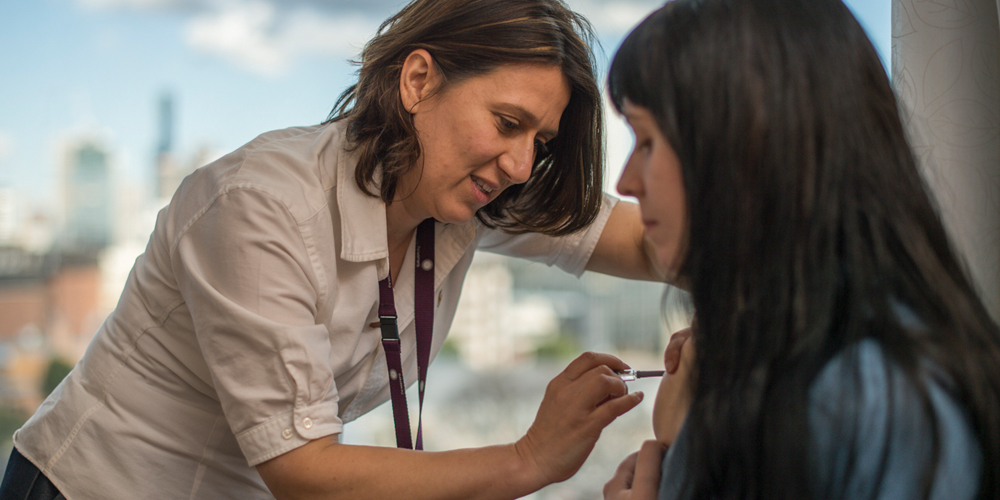
New research led by the Women's and published internationally overnight shows that the national program to vaccinate school-aged girls and boys with the "anti-cervical cancer" vaccine is providing population-wide protection against the virus responsible for most cases of cervical cancer.
Vaccination with Gardasil is intended to prevent infection with the human papillovirus (HPV) types that cause 75% of cervical cancer. Six years after the vaccination program started, the latest findings confirm that infection with these particular types of HPV, in people who have been vaccinated, has been reduced by 77%. Surprisingly, though, these new findings show that infection with the types of HPV in the vaccine have been reduced in women who have never received the vaccination.
The Women's Associate Professor Sepehr Tabrizi, who is a co-lead author on the study, said the team's findings also suggest that the vaccine is providing protection against three other very similar types of HPV that are not in the vaccine.
According to Associate Professor Tabrizi, these findings do not suggest it is safe to not have the vaccine. "You cannot opt out of the vaccine and assume you will be protected. But by having the vaccination, you are not just lowering your risk of you or your sexual partners getting genital warts or cervical cancer, you are also helping the rest of the community."
"It's also important to remember," said Associate Professor Tabrizi, "that all women - whether they've had the vaccine or not - should continue to have a Pap test to check for cervical cancer."